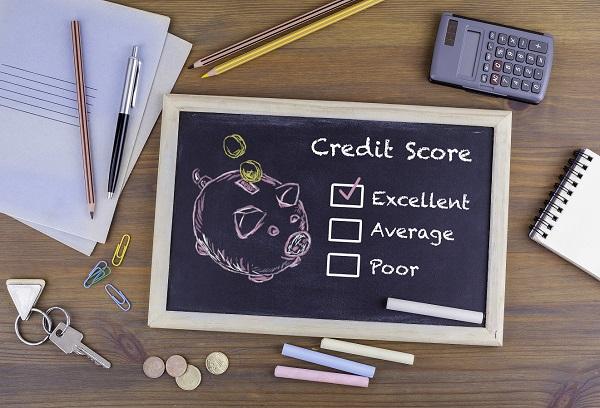Why Finding out Your Credit Score Won’t Hurt You
By Diana Hart

One day you look up and you realize, it’s happened, you’re an adult. You file taxes, you vote, you’re an independent member of society. The moment has come. You should find out what your credit score is.
No, that sounds terrible; I don’t want to do that.
Breathe. It’s actually easy to check your credit score. This is information about your finances that you’ll need to know when you’re applying for a credit card, car loan or house hunting.
Embarrassing question – what exactly is a credit score?
A credit score is a number that evaluates a person’s creditworthiness. It’s essentially an objective snapshot of your past financial history that helps lenders evaluate how likely it is that you will repay a loan. In Canada, your credit scores range from 300 up to 900 points (which is the best possible score).
What’s a good credit score?
Ideally, you want your credit score to be in the 700 to 900 range; typically, the higher the score, the better. Each lender decides which credit score range it considers a good or poor credit risk. It’s important to remember that your credit score is only one component of the information that lenders may use to evaluate what could be a credit risk.
What do you need a good credit score for?
Having a good credit score goes beyond helping you get a loan for your house. It can help with things like being able to rent an apartment, lease a car or start a new business.
I heard checking your credit score can lower it!
Good news – checking your credit score doesn’t have to affect the number. Find out if the service you are using to check your score counts as a ‘hard inquiry’ or a ‘soft inquiry.’ Hard inquiries usually happen when a financial institution checks your credit report to make a lending decision, like approving you for a mortgage or a credit card. Soft inquiries are when a person or company checks your credit report for a background check, like an employer before they officially hire you. Hard inquiries can slightly lower your credit score; soft inquiries don’t have any effect on it. There are great options to checking your credit, like the CreditView℠ service from TransUnion®*, made available to you through Scotiabank, that count as a soft inquiry so it won’t impact your score.
I checked my credit score a couple years ago, so I’m set.
Credit scores can change over time. It’s good to keep up-to-date with your credit score. You can change your habits if you see that your score is falling or build on your positive habits if it is going up.
Does having a credit card hurt your score?
Properly managing your credit cards is actually a good way to improve your credit score. Especially when you are first starting out, you need to build a credit history. Paying off your monthly credit card on time will help you build a positive credit history.
Do I need a high income to have a high credit score?
Your credit score is based on regular timely payments, not income. You can have a great credit score if you keep on top of your payments and make sure you make them on time.
If I have a bad credit score, can I fix it?
Yes, absolutely, by managing your credit better, you can improve your score over time. There are a few key ways you can improve your credit score:
1. Create a monthly budget: list out your expenses and income to see where your biggest expenses are coming from. For your credit cards, make sure you make at least your minimum payment each month.
2. Be punctual: set reminders to help you make sure you pay your bills on time. Consistently late payments have a very negative impact on your score.
3. Watch your debt: Keep your account balances below 35% of your available credit. For example, if you have a credit card with a $1,000 limit, try to keep the outstanding balance below $350.
So how can I check my score?
Scotiabank customers can check theirs by using the CreditView from TransUnion® – accessible through the Scotiabank mobile app and through ScotiaOnline. Through this service, Scotiabank customers can check their score, learn tips to improve it and sign up for monthly updates from TransUnion®.
*CreditView service is provided by TransUnion®. The Bank of Nova Scotia and its affiliates are not responsible for this service.
Legal Disclaimer: This article is provided for information purposes only. It is not to be relied upon as investment advice or guarantees about the future, nor should it be considered a recommendation to buy or sell. Information contained in this article, including information relating to interest rates, market conditions, tax rules, and other investment factors are subject to change without notice and The Bank of Nova Scotia is not responsible to update this information. All third party sources are believed to be accurate and reliable as of the date of publication and The Bank of Nova Scotia does not guarantee its accuracy or reliability. Readers should consult their own professional advisor for specific investment and/or tax advice tailored to their needs to ensure that individual circumstances are considered properly and action is taken based on the latest available information.
